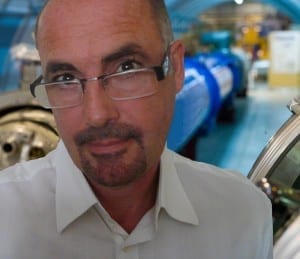
Author Bio:
Born in Yorkshire, England, Daniel spent his formative years with his head buried squarely in a book. His appetite for literature was insatiable; by the time he was a teenager he had read an entire library of books, from ‘the classics’ to popular fiction, but his preferred genre was action and adventure, citing Frederick Forsyth, Tom Clancy and Robert Ludlum amongst his favourite authors.
It was inevitable that he would take his passion into adulthood and, in 1979, went to Manchester University, graduating with a first class honours degree in English Literature. After a short spell as a journalist at the Manchester Evening News, he recognised the commercial potential of the newly emerging computer industry and joined IBM, where, his forward-thinking creativity was put to good use, developing some of the computer platforms that are still recognise as the industry standard, today.
Daniel left IBM in 1995 to set up his own company. Carving a career as an internet entrepreneur left little time for him to pursue his dream of writing his own novel, although, his passion for reading never waned and was rarely seen without the latest best-selling novel in his hand.
Daniel now works as a freelance writer and, with the encouragement of his family, has finally found the time to put pen to paper. His first novel was inspired by a business trip to Geneva, where he overheard two technicians from the nearby CERN institute discussing the Hadron Collider.
His exciting thriller The God Particle has been published by Aventura and is available from major online e-book stores.
What inspires you to write?
I have a passionate belief in the underlying message in my book: science in and of itself is not a justification for creating devices that could threaten the destruction of the world. Scientists must temper their reckless curiosity with a sense of extreme caution to avoid doing far more harm than good.
Tell us about your writing process.
Research, research and more research! Sci-Fi as a genre covers a multitude of topics, from flying saucers and aliens to time travel and parallel universes. Most require a suspension of disbelief by the reader. I wanted to create a fictional world that didn’t require such a leap of faith. It had to be both engaging yet conceivable – science fiction based on science fact. The only way I could achieve this was to know my subject matter inside out, hence the research. But it was the questions that started to formulate out of my fact-finding that ultimately spurred me on – What if the spate of so-called natural disasters – tsunamis, earthquakes, floods etc have been triggered by something we’re doing? What if the motives for scientific discovery are not necessarily for the benefit of mankind? What if we have reached a tipping point of developing technology so profound, that it can destroy the human race?
For Fiction Writers: Do you listen (or talk to) to your characters?
Both – I try to put myself in their situation – what would I do? What would I say?
Then once the dialogue has been written I ask myself more questions – would he or she really say or do that? Only when I am convinced that the characters actions and reactions are plausible then I can move on.
What advice would you give other writers?
I have found, probably like most new authors, that the writing is only a small part of the process – admittedly an important one and one that you need to get right but to get your book read by your audience is another matter altogether. The marketing of your novel is just as important. What’s the point of writing the best book in the world if nobody reads it? You need to be clear who your audience is and target them specifically, through websites, blogs, book tours etc. The aim of the game is to get reviews and the more positive reviews you have the more confidence readers will have to purchase your book.
How did you decide how to publish your books?
I was lucky enough to have been picked up by an independent publisher in the UK, who have helped me put the finishing touches to my novel and are actively promoting it. Having said that, its not the end of the road if you don’t find a publisher – there are a lot of good self-published books out there that are successful. That’s because the marketing tools are in place to help authors promote their books. Just tap in book reviewers and you will see a whole host of websites offering to review your book – I’ve used www.ebookreviewer123.com and found them particularly helpful.
What do you think about the future of book publishing?
The e-book revolution is already here and will continue to go from strength to strength. It gives authors the opportunity to show-case their work without having the financial restrictions that traditionally printed books required and that can only be a good thing for everybody (apart from the printers of course!)
What do you use?
Professional Editor
What genres do you write?
Action/adventure, thriller, murder/mystery
What formats are your books in?
Both eBook and Print
Website(s)
Daniel Danser Home Page Link
Link To Daniel Danser Page On Amazon
Link to Author Page on other site
Your Social Media Links
https://www.goodreads.com/book/show/19501068-the-god-particle
https://www.facebook.com/godparticlenovel
https://twitter.com/DanielDanser
